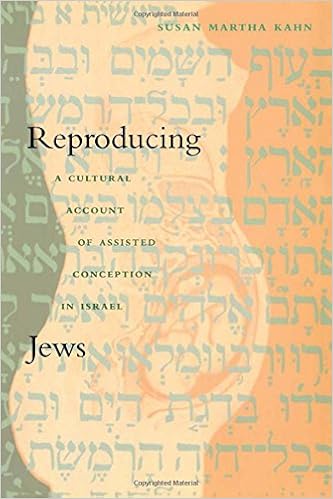
It's no wonder that this book won the National Jewish Book Award this year. Kahn zeroes in on a much neglected area -- the lives of women in Israel-- and a subject -- infertility policy -- of interest not only to medical anthropologists and other scholarly researchers but to interested would-be parents and their friends and families around the world. In exploring Israel's public policy on reproduction and the way Israeli women go about utilizing it, Kahn has written a fascinating, provocative, and rewarding book.
There are more fertility clinics per capita in Israel than in any other country in the world and Israel has the world's highest per capita rate of in-vitro fertilization procedures. Fertility treatments are fully subsidized by Israeli national health insurance and are available to all Israelis, regardless of religion or marital status. These phenomena are not the result of unusually high rates of infertility in Israel but reflect the centrality of reproduction in Judaism and Jewish culture.
In this ethnographic study of the new reproductive technologies in Israel, Susan Martha Kahn explores the cultural meanings and contemporary rabbinic responses to artificial insemination, in-vitro fertilization, egg donation, and surrogacy. Kahn draws on fieldwork with unmarried Israeli women who are using state-subsidized artificial insemination to get pregnant and on participant-observation in Israeli fertility clinics. Through close readings of traditional Jewish texts and careful analysis of Israeli public discourse, she explains how the Israeli embrace of new reproductive technologies has made Jewish beliefs about kinship startlingly literal. Kahn also reveals how a wide range of contemporary Israelis are using new reproductive technologies to realize their reproductive futures, from ultraorthodox infertile married couples to secular unmarried women.
As the first scholarly account of assisted conception in Israel, this multisited ethnography will contribute to current anthropological debates on kinship studies. It will also interest those involved with Jewish studies.
No comments:
Post a Comment